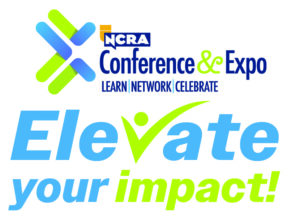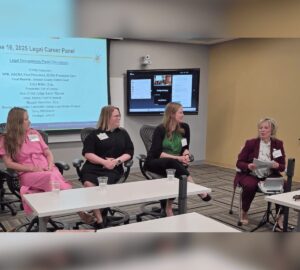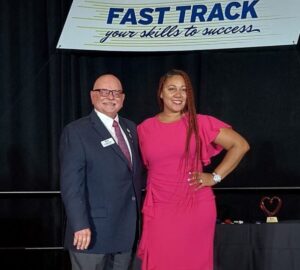What do you picture when you think of NCRF’s popular partnership with the Library of Congress Veterans History Project? For NCRF staff, it’s not what so much as who comes to mind, and the answer is people like Nancy Rowland, RPR (Ret.). The now-retired court reporter from Arizona is one of the Veterans History Project’s biggest supporters, having completed 33 transcripts since 2012.
Rowland initially heard of the VHP through articles in the JCR.
“Although my interest was piqued,” Rowland says, “[I was] then working full time in Washington, D.C., [and] I pulled the lame excuse card of being too busy.”
After her husband’s retirement prompted a cross-country move to rural Arizona, a fellow court reporter shared her experience at a VHP Day. This time, Rowland, the daughter of a Korean War vet and daughter-in-law of a World War II vet, jumped at the chance to get involved.
“Unfortunately, my father passed away before my involvement in the VHP,” Rowland says, “so his personal story was not told. My father-in-law is alive and well, so in 2012, conducting his interview was top priority.”
This gave Rowland (and her husband, as the interviewer) the opportunity to learn more about her father-in-law’s service.
“[My father-in-law] was not one to freely discuss his war experiences. But framed and hung on the wall in the back corner of his rec room was his Bronze Star Medal,” Rowland says. “Because the VHP opened the door for his interview to be conducted, we now have a better understanding of why he earned the Bronze Star and, in turn, we gained some insight into how he endured horrific war experiences. Even though we always admired him as a loving family man, learning more about his military experiences served to strength our admiration.”
After capturing her father-in-law’s story, Rowland continued to transcribe prerecorded accounts from the Library of Congress’ collection. Transcribing these histories has been just as gratifying for her as preserving her own family’s stories.
“Of course, there is the element of curiosity and desire to know your personal family history,” Rowland says. “Otherwise, I haven’t experienced a difference in transcribing other veterans’ stories. Once you hear their voices or see them on video, their stories become real and equally important.”
“The most rewarding part for me is in regards to the families of the veterans,” she explains. “For generations to come, the families will have access to their stories, read their words, hear their audio, and, for some, even see the video. The families can be very proud of these great Americans, their ancestors.”
Even though Rowland has completed so many histories, details from the veterans’ experiences stay with her.
“Every story has left its mark on me,” Rowland says. “Recently while touring Europe, I had a different perspective. While driving through Romania, we happened upon the Ploesti Oil Fields, and it immediately brought to mind the WWII veteran who flew bombing missions over the Ploesti Oil Fields. One of the days became known as Black Sunday because of all the lives lost.”
Three of the veterans whose accounts she transcribed were POWs.
“One spent five years in the ‘Hanoi Hilton’ during Vietnam, one spent three months on the Death March across Germany in WWII, and the third was also a POW during WWII,” Rowland says. “I am at a loss to understand how they endured the physical and mental torture of being a POW.
“Interestingly, they all stated the worst part of being a POW was ‘losing your freedom,’ which I think we take for granted in our everyday lives,” Rowland continues. “The veterans who recounted their experience of being on troop ships coming home, entering New York Harbor and crowding the deck rails to view the Statue of Liberty, leave me with a powerful image.”
Transcribing these stories, as well as the many others, honors and pays tribute to what veterans have endured.
“To those heroic men and women who sacrificed their lives or have been injured in their tireless efforts to preserve the freedom that I enjoy, I am forever grateful,” said Rowland.
Since her retirement in 2013, Rowland has continued to transcribe about one to two histories a month, on average. As a Lifetime Retired Member, Rowland no longer needs the PDCs reporters can earn for transcribing a history; she does it to preserve the record, just as she did as a working court reporter.
“For 37 years I worked hard at my profession being the keeper of the record, but I feel now I am doing my best work yet and encourage others to get involved in the Veterans History Project.”
For more information about how to participate in the VHP, please visit NCRA.org/vets.













